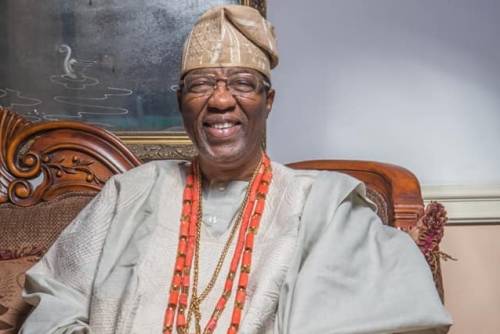
Before we talk about the outlook this year, let us reflect briefly on 2016. Mr Laoye, would you say that 2016 was a good year? Would you say that we made significant progress? We know that there was stronger backing from the government but would you say that 2016 was a good one for agriculture?
LAOYE: We had significant progress if you look at where we’re coming from. Farmers were smiling to the banks and people who might not have gone into farming are now interested in going into the business. I think it’s a good direction.
How about in terms of how we sorted out or addressed our challenges. We know that finance remained a huge issue. We know that farmers are still largely ill equipped. Most of our farmers do it on a subsistence basis. Did we empower the farmers and ensure that they had better fertilisers, better seeds and all of that. Would you say that we had a better approach to our challenges in 2016, Chike?
NWAGWU: No not at all. A lot of the successes of 2016 were a bit surprising. They were more as a result of other things happening around that affected agriculture rather than a truly planned approach to success. There was some price inflation which resulted in farmers getting a lot more money than they normally would. The weather was very kind despite earlier predictions of early rains but those never quite came true. So there was a bumper harvest despite late fertiliser distribution efforts because the markets really did have to work out how to get fertilisers to farmers. In fact fertiliser prices doubled over the course of the year, but all of that has been offset by good harvests and very high prices for commodities.
Akintunde, how would you describe the Agric sector in 2016 in a sentence?
SAWYERR: In a sentence I’d say that the agric sector in 2016 has done very well. I tend to agree with Chike who said that it was more due to luck than judgement. I think that the decline in oil revenues, the stemming of the free flow of flaws and the seeming continuity between the last administration and this administration in terms of agriculture has benefited the sector. There’s been some continuity of policy between the previous minister and the current minister and as I said there’s a lot of thinking now going into the fact that we don’t have the free flow of funds from crude oil.
Would you say that a lot of political will went into it, because for several years, we’ve known what to do. We’ve known what the challenges are but it would appear that last year there was a little bit more co-ordination and focus. Would you say that political will played a part in this?
SAWYERR: Very directly yes. I think that what we’re seeing now with states struggling to pay salaries, with the general recession that we see. As I mentioned earlier the stemming in the flow of funds, has concentrated the minds of politicians and office holders into understanding that the stipends they would normally get from foreign countries in terms of dollars are no longer there. That concentration of the mind has obviously given the politicians the political will to find other ways of sourcing revenue. So by luck or by judgement, one way or the other, the political will is there for now. If the oil price suddenly starts to shoot up or we make another huge discovery whether that political interest will remain or not is a question that needs to be asked.
Well oil prices are at $56 dollars per barrel but let’s not get into that. Let’s get into the budget. Akin N 92 billion has been allocated to the sector this year. President Buhari described it as a historic amount because because the government this time around wants to fully unlock the potential of agriculture. Does that amount excite you?
LAOYE: To be honest I’m not excited. Yes, if you look at the past you might say that it’s a lot of money but you have to look at the parameters. What’s going on here now? What is the value of the naira in real terms? So for that purpose I think the government has to do better. It’s good. It’s encouraging. If it is well directed to the point where it should be hopefully we’ll see some great traction this year, but we believe that the government needs to keep focused on this and make sure that there’s so much tracking.
We don’t want it to be like the way things were before. It’s too early to judge that there’s political will right now because they say necessity is the mother of invention. Oil prices dropped, we had problems with the Niger delta. Government saw that revenues were shrinking so they had no choice but to face agriculture. The question here is really if the oil price go up and there’s peace in the Niger Delta will these guys follow this policy? Those are the issues we really have to look at. And also, we have to look at all the leakages that have been existing. Have we plugged those leakages? If anything happens to inspire a large upward movement in the price of oil I’m pretty sure that people will take their hands off the the reins.
I suppose we won’t find out until oil prices hit maybe $80 per barrel, but Chike I suppose the point to take away from this is like Akin said we know how much we want to spend this year, but how do we begin to allocate these funds. We have a value chain that’s still wobbly. Where should we begin to Channel these funds to looking at the value chain that can give us quick wins? We keep talking about quick wins. How can we truly unlock these quick wins?
NWAGWU: To tell the truth, the amount of money budgeted isn’t that important. There are only a few areas I believe the ministry of agriculture should be allowed to spend money on. There are a lot of things around farming and agriculture spending growth that do not lie with the ministry of Agriculture. They have to do with a number of ministries. Transportation is a key factor, so what’s the budget for transportation? It has a direct relationship toward agricultural productivity. Power is an issue for people in processing. So you might get the raw materials but if you don’t have power there’s an issue.
Housing, Power, and Works got the highest allocations this year followed by transport and then agriculture. So in that order it looks like we’re in good shape.
NWAGWU: When you look at all that and you say, the money being allocated to agriculture, where should it go? Now the first thing that comes to mind is probably extension work. If you’re looking at primary production, you’re looking at the same profile of farmers. You’re looking at lack of education, planting methods, productivity, and yield per hectare and then you sit down and you say extension to farmer ratio is probably 1 to 8000 while the accepted level in the world is 1 to 500. So there’s a lot of work to do. Yes, get the extension workers but you also have to train the extension workers. You have to link the extension workers to the right inputs and methods. Extension is the most basic thing when you look at primary production.
Akintunde, where should we start?
SAWYERR: Where I think to a large extent I align myself to the comments Chike just made. I think it’s about trying to understand the value chain and where it sits within the government. Again I’m less interested in what is budgeted I’m more interested in what is done with what is budgeted. If we’re going to have lots of retreats and lots stakeholder meetings to talk about agriculture, then that for me is a complete waste of time. If we’re prepared to spend part of that money on research on where food is consumed and where it’s produced and what happens between one and the other, where the bottlenecks are so we can unlock those bottlenecks. I am for more interested in using the funds to do that. Just as a very small example. If you said for example, that if you have a truck that’s moving produce, it shouldn’t be stopped for any reason and you put the right checks and balances in place to make sure that policy is not abused, you would have done a lot for the sector. The other thing to think about is so you deploy 92 billion into a project. In the private sector, you’d want to know what returns you’re getting for that. You’re not just deploying funds. You’re deploying funds for a return. In government that return might maybe be judged in terms of taxation. It’s those sorts of things I’m interested in.
[ad unit=2]






